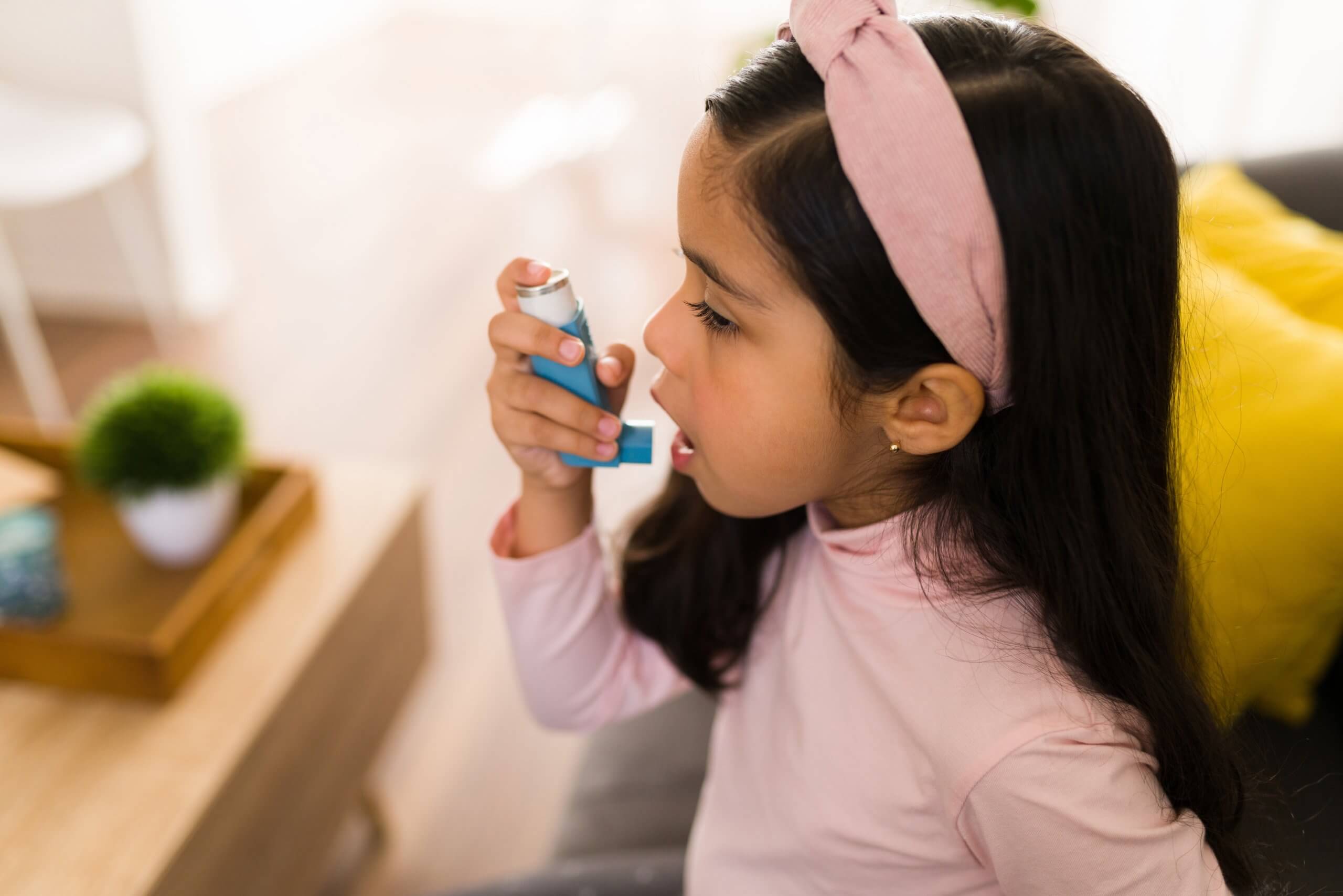Asthma is a serious, chronic and potentially debilitating respiratory condition. The indoor air quality in your living space does impact symptoms and potential attacks. We certainly won’t pretend to be health experts or explain the nuances of asthma. However, we do know asthma is one of the top reasons people consider buying air purifiers for their homes.
After all, according to the Asthma and Allergy Foundation, more than 25 million Americans suffer from asthma. It’s a widespread disease with numbers that are steadily increasing. It is also the leading chronic disease in children. In consequence, it makes sense why so many people are interested in home air purification. Purifiers can help reduce asthma attacks and symptoms because they help reduce indoor exposure to environmental triggers.
Will An Air Purifier Help Relieve Asthma Symptoms?
The air purification process quite literally is cleaning indoor air. Clean air means fewer indoor air pollutants. Fewer pollutants in your breathing space mean fewer asthma triggers. This is helpful as it’s the many tiny microscopic particles present in the air that contributes to inflamed and clogged lungs. Both of which make it more difficult to breathe and can prompt an asthma attack.
 Air Purification: Our hot take: Portable room air purifiers are a waste of money compared to whole-home systems. Here’s why →
Air Purification: Our hot take: Portable room air purifiers are a waste of money compared to whole-home systems. Here’s why →A crucial step to minimize asthma attacks and symptoms is to reduce exposure to environmental triggers. While you cannot control the weather or pollutant levels outdoors, you do have a say when it comes to your indoor living space. Therefore, investing in an air purifier for asthma is quite a helpful solution.
Common Indoor Asthma Triggers
Asthma triggers are simply different environmental factors that cause or worsen asthma symptoms or prompt an asthma attack. Triggers are different for every person. They can also be found anywhere and everywhere, outside and inside. That is why avoiding triggers and doing everything possible to minimize triggers is the first step to help keep asthma under control.
According to Asthma Canada, there are two types of triggers. Inflammatory or allergic triggers, and symptom or non-allergic triggers. Both categories of triggers include sources that indoor air quality control solutions, like an air purifier, help reduce. Here are some of the more common asthma triggers:
1. Dust and Dust Mites
No one really wants to acknowledge the presence of dust mites in our living spaces, and yet, they are present. These tiny microscopic bugs feed on dust, which is a combination of things. Dust and dust mites are also common asthma allergens.
2. Cockroaches and Pests
Unwelcome pests, and particularly cockroaches (often found in city homes and indoor spaces) are another frequent asthma allergen.
3. Pet Dander
If you are allergic to animals, but can’t part with your beloved pets, pet dander is a likely pollutant to be wary of with asthma and allergies.
4. Mold
Mold growth is not only harmful to your health and the space’s indoor air quality as a whole, but it can also worsen asthma symptoms. Even if you are not allergic to mold, exposure can still cause attacks.
5. Outdoor Air Pollution
Outdoor air pollution, like indoor pollutants, also triggers asthma attacks. It also affects indoor air pollution. So even though you cannot control the weather and pollutant levels outdoors, using IAQ control methods helps minimize pollution in your indoor space.
6. Cleaning and Disinfectant Products
Another common source of increased asthma symptoms is cleaning and sanitization products. Yes, those frequently used everyday cleaning products in the home. In addition to choosing safer products with fewer toxic ingredients or scents, prioritizing good ventilation when cleaning can help.
7. Smoke
Smoke in all forms worsens indoor air quality. This includes tobacco smoke, secondhand smoke (hello neighbors!), smoke from wood-burning fireplaces, stoves, ovens and smoke from outside sources such as wildfires. For asthma sufferers, tobacco smoke in particular can trigger asthma attacks.
Considering the multitude of asthma triggers, it’s unlikely that you could control indoor exposure simply by cleaning alone. Instead, choose to intervene in your home’s health with IAQ control. Utilizing whole-home solutions is an efficient and helpful way to reduce indoor air pollution, create a healthy indoor space and reduce asthma attacks. And air purification is both a popular and beneficial choice.
Best Air Purifier for Asthma
There are tons of different air purifiers available today. Options range from single-room portable purifiers to whole-home systems with varying purification methods, intended to treat different sized areas, spanning a wide price range. So, how do you choose the best air purifier for asthma?
The first requirement is, of course, that it successfully reduces indoor pollutant levels and asthma triggers. Choose an air purifier that reduces allergens and pollutants of all sizes and has a high airflow rate. Indoor air quality experts also recommend choosing an air purifier that has been third-party verified. This validation ensures the manufacturer’s testing data matches an independent lab’s testing data.
We also generally recommend choosing a whole-home purification system. Opting for a unit that actively cleans and purifies the air in your entire space will always be the better choice in our opinion. These whole-space devices install directly into your home’s existing HVAC system and ductwork, working in tandem with the forced air system. This makes it a low-maintenance and low-effort choice.
If, however, you opt for a portable unit, make sure to place it where you spend the bulk of your time. For asthma sufferers, in particular, it’s necessary to have the healthiest indoor breathing air possible. This is why we recommend upgrading to a whole-home purification system. The result is safer, healthier indoor air throughout the house.
Healthy Homes Through IAQ
Asthma is a chronic disease that affects many people, across many demographics. For asthma sufferers, it’s incredibly important to actively prevent attacks. Creating a healthier home, via indoor air quality solutions like purification, is an efficient course of action. If you’re interested in upgrading your home to include a whole-home purification system, we can help you find an IAQ professional in your area.




